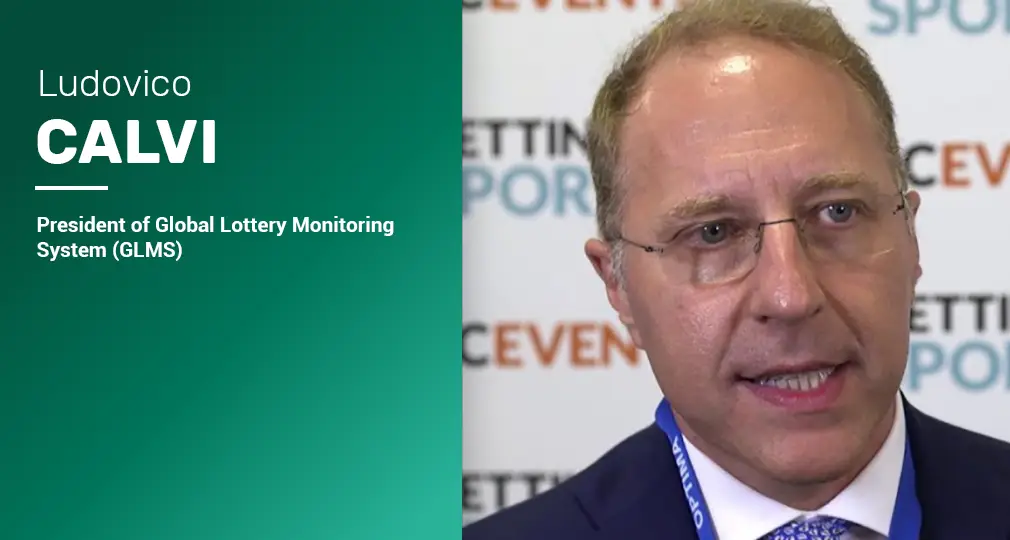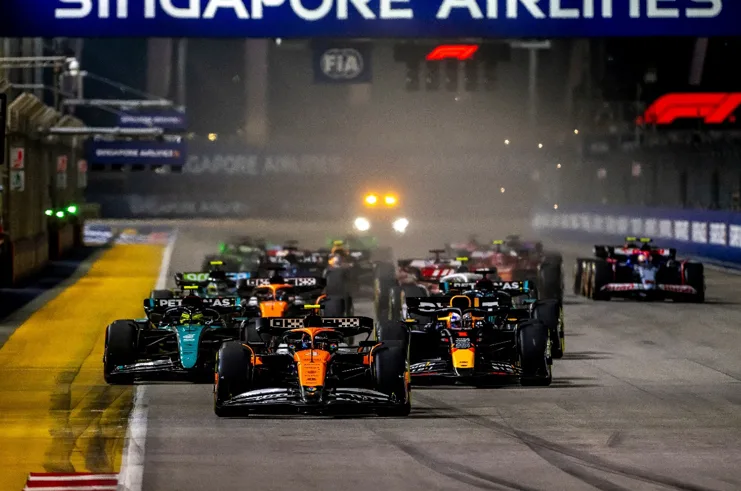The problem of sports integrity and match-fixing is frequently highlighted in news about the betting industry. Ludovico Calvi, President of Global Lottery Monitoring System (GLMS), has provided a detailed overview of the bookmaking market during and after the lockdown and match-fixing in sports.
GLMS is a global non-profit sport integrity organization, which, among other things, is focused on monitoring and detecting suspicious betting patterns. Ludovico Calvi, who heads the organization, has much experience in this vertical and has shared it with Login Casino readers.
The pandemic has brought many changes to the betting industry. For example, more focus was put on esports and fantasy sport due to the lack of real-life events. In your opinion, how will the industry evolve and change during this year?
The cessation of mainstream sports competitions worldwide, due to the first wave of the COVID-19 outbreak, has created major financial issues for those gaming organizations, which have been unable to invest in substitute products rapidly. Many had to propose new alternative betting options on minor sports competitions, review their channel distribution, combine both B2C and B2B environments and redeploy resources towards digital channels rapidly to continue to operate and satisfy drastically changing consumer’s needs.
As we now enter the first months of 2021 and observe governments taking very tough measures to contain the second/third wave of the COVID-19 cases, the world of sport could be facing another slowdown yet again.
As a result, the gaming industry should go back to the outbreak of the pandemic in the spring and make the most of the lessons learned from the first lockdown to respond to possible future business disruption effectively. Gaming organizations should have reviewed and expanded their betting and gaming portfolios following the unprecedented experience during the spring of 2020. The ability to act fast and engage customers effectively will prevail.
The quality and entertainment of the customer experience have been by far the most important differentiating element, alternative products such as virtual betting, fantasy, esports, table tennis, casino games, or darts all captured players’ interest and, in some cases, accounted for up to 80% of overall sales in the absence of traditional sporting events.
While sports betting and online casino have traditionally had little in common, the shutdown of global sports seen last year emphasized the importance of effective cross-selling tools. Since the customer experience and product options are becoming ever so important, new and innovative games need to be entertaining for the players. However, they should also generate value for operators, and offer a cost-effective means to cross-sell casino to traditional sports betting customers.
According to recent studies, the amount of fraud is increasing in sports betting. What can operators do to protect users’ data?
The answer is the collective actions and collective responsibilities of all sports gaming and integrity communities. The credibility of the industry is at stake. Individuals are increasingly reliant on the convenience and velocity of digital payments, even more so with the acceleration of the process of digitalization during the pandemic. To move further away from cash, however, we need payment services to take a quantum leap. In turn, we need to improve cybersecurity solutions and reliability and have safeguarding measures in place alongside higher global compliance standards in which we can all have confidence. GLMS is working on providing educational activities to its lottery members on addressing the various facets of the protection of data.
Let’s talk about the technological side of the sports betting industry. It is really difficult to keep pace with current innovations. What new technologies are worthy of operators’ attention in terms of competitiveness?
What successful gaming companies will need to share are the following capabilities:
- Customer experience.
The customer knows when and how to engage with the business to enable an ever-growing array of channels. Meanwhile, they now have liquid expectations (vis-a-vis consumer).
- Living services.
Create highly segmented and rapidly evolving products and services that continually engage with the customers (chooser/user/end-user).
- Rapid delivery capability.
Digital platforms, modern delivery methods, and tools enabled the scaled delivery of customer services and experiences using IT and networks.
- Digital process.
Processes that are automated and highly efficient, providing accuracy, cycle time speed, and significant data for use by the business.
- Applied intelligence.
A central brain for the business, providing connecting intelligence, powered by data and analytics, and guiding customer experience and business performance.
- Innovation culture.
A company personality that rewards risk-taking, encourages cross-functional cooperation, and a data-driven culture.
What do you think about the usage of cryptocurrency in the sports betting market? Will blockchain technology make it more convenient or only hide illegal actions?
I think that, as long as governments and financial institutions do not create the suitable conditions to regulate cryptocurrency transactions with global cybersecurity and compliance standards needed to satisfy public confidence, it will be difficult.
What is the best way for operators, sports industry representatives, and sports integrity organizations to cooperate to achieve the maximum results and efficiency?
GLMS heavily relies on the Council of Europe’s International Convention against the Manipulation of Sports Competition and our Code of Conduct is essentially based on the principles of the Convention. We feel strongly about the need by governments worldwide to ratify the Convention and implement its key principles.
We also believe that public and private stakeholders operating in the sport and gaming sector should also adopt the measures contained in the treaty. The Convention is the only international legally binding instrument that promotes global cooperation to counter the manipulation of sports competitions. It establishes a single global legal framework to address match-fixing in all sports competitions, as well as creating legal definitions for issues, such as conflicts of interest between the various actors involved and illegal betting.
In addition, control processes to combat bad governance and the management of confidential information as well as the use of sports organizations as shell companies are also covered by the scope of the Convention. GLMS as an observer to the Convention Committee will endeavor to ensure that the interests of its members are represented and will continue to encourage an exchange between our members, ourselves, on the one hand, and with other relevant stakeholders in their operational, educational, and prevention activities. We do this through our collaboration on projects and by organizing relevant activities.
What are the best tools to protect sports from match-fixing?
In general, genuine national and international cooperation based on intelligence and data.
Article 3 of the Treaty sets out the definition of the manipulation of sports competitions. In particular, referring to the Convention’s Interactive Typology Framework Tool developed by the Council of Europe, as well as a practical guidebook under its project Keep Crime out of Sport (KCOOS). The Framework classifies the different types of competition manipulation that could fall within this definition, using consistent terminology. It also provides examples of each type. The Framework is not intended to be an exhaustive list of every possible scenario of competition manipulation but it is a key guideline.
The basic Framework is structured using a two-factor classification method: (i) the type of the manipulation which is then further categorized by (ii) criteria relating to the instigator(s) of the manipulation.
The three types of sports competition manipulations are:
1. Direct interference in the natural course of a sporting event or competition, i.e. deliberate manipulation by individual(s) involved in the event.
2. Modification of an athlete’s identity or personal information in order to influence the natural course or outcome of a sports competition.
3. Modification that is non-compliant with criminal laws or sport rules relating to:
- playing surfaces;
- equipment;
- athlete physiology;
- a sporting venue.
These three types can then be further sub-categorized by using the following criteria relating to the instigator(s) of the manipulation:
- Exploitation of governance.
- Exploitation of power or influence.
- External influences.
- Opportunistic.
Other very useful tools are engagement in projects, for example, those financed by the European Union (with regard to EU countries) or other cooperation activities.
How is match-fixing connected with other criminal activities?
Match-fixing is commonly referred to as defining the activities on the sports ground, whereas sports manipulations combine match-fixing and activities around and off the sports venue. This definition, therefore, encompasses many related activities, criminal included.
Organized criminal activity is clearly involved in betting-related match-fixing and is a major threat, but it’s not the only threat. Criminal organizations have been very active since the outbreak of COVID-19 seizing any opportunity – even a health crisis – to further their illicit activities and, therefore, GLMS has increased the level of vigilance and intelligence monitoring and its policy and educational work for members together with other stakeholders and will do more so in the future.
Further threats, in fact, will come in the months to come, given that the financial crisis has hit hard several sports organizations globally at all levels, and this, in turn, could potentially increase the level of vulnerability of several sport stakeholders and athletes.
It goes without saying that, in addition to athletes, key sport club stakeholders may also be implicated in such cases with the objective of making easy unfiltered money to allow the club to “survive” in low key championships where there is very little money available. This scenario could inevitably create conditions for fraudsters to exploit weaknesses and take advantage of this moment of the vulnerability of the system in the “new normal”. It is our duty to continue to be vigilant and protect the safeguarding measures put in place to guarantee the legality and protect athletes and all the stakeholders involved across the globe.
Read more: Betting Affiliate Programs












